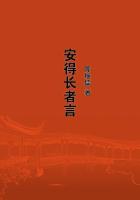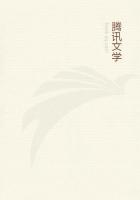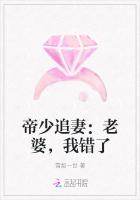Moreover, see whether the term fail to be used in the same relation both when called by the name of its genus, and also when called by those of all the genera of its genus. For if the double be a multiple of a half, then 'in excess of 'will also be used in relation to a 'half': and, in general, the double will be called by the names of all the higher genera in relation to a 'half'. An objection may be raised that there is no necessity for a term to be used in the same relation when called by its own name and when called by that of its genus: for 'knowledge' is called knowledge 'of an object', whereas it is called a 'state' and 'disposition' not of an 'object' but of the 'soul'.
Again, see whether the genus and the species be used in the same way in respect of the inflexions they take, e.g. datives and genitives and all the rest. For as the species is used, so should the genus be as well, as in the case of 'double' and its higher genera: for we say both 'double of' and 'multiple of' a thing. Likewise, also, in the case of 'knowledge': for both knowledge' itself and its genera, e.g.
'disposition' and 'state', are said to be 'of' something. An objection may be raised that in some cases it is not so: for we say 'superior to' and 'contrary to' so and so, whereas 'other', which is the genus of these terms, demands not 'to' but 'than': for the expression is 'other than' so and so.
Again, see whether terms used in like case relationships fail to yield a like construction when converted, as do 'double' and 'multiple'. For each of these terms takes a genitive both in itself and in its converted form: for we say both a half of' and 'a fraction of' something. The case is the same also as regards both 'knowledge' and 'conception': for these take a genitive, and by conversion an 'object of knowledge' and an 'object of conception' are both alike used with a dative. If, then, in any cases the constructions after conversion be not alike, clearly the one term is not the genus of the other.
Again, see whether the species and the genus fail to be used in relation to an equal number of things: for the general view is that the uses of both are alike and equal in number, as is the case with 'present' and 'grant'. For a present' is of something or to some one, and also a 'grant' is of something and to some one: and 'grant' is the genus of 'present', for a 'present' is a 'grant that need not be returned'. In some cases, however, the number of relations in which the terms are used happens not to be equal, for while 'double' is double of something, we speak of 'in excess' or 'greater' in something, as well as of or than something: for what is in excess or greater is always in excess in something, as well as in excess of something. Hence the terms in question are not the genera of 'double', inasmuch as they are not used in relation to an equal number of things with the species. Or possibly it is not universally true that species and genus are used in relation to an equal number of things.
See, also, if the opposite of the species have the opposite of the genus as its genus, e.g. whether, if 'multiple' be the genus of 'double', 'fraction' be also the genus of 'half'. For the opposite of the genus should always be the genus of the opposite species. If, then, any one were to assert that knowledge is a kind of sensation, then also the object of knowledge will have to be a kind of object of sensation, whereas it is not: for an object of knowledge is not always an object of sensation: for objects of knowledge include some of the objects of intuition as well. Hence 'object of sensation' is not the genus of 'object of knowledge': and if this be so, neither is 'sensation' the genus of 'knowledge'.
Seeing that of relative terms some are of necessity found in, or used of, the things in relation to which they happen at any time to be used (e.g. 'disposition' and 'state' and 'balance'; for in nothing else can the aforesaid terms possibly be found except in the things in relation to which they are used), while others need not be found in the things in relation to which they are used at any time, though they still may be (e.g. if the term 'object of knowledge' be applied to the soul: for it is quite possible that the knowledge of itself should be possessed by the soul itself, but it is not necessary, for it is possible for this same knowledge to be found in some one else), while for others, again, it is absolutely impossible that they should be found in the things in relation to which they happen at any time to be used (as e.g. that the contrary should be found in the contrary or knowledge in the object of knowledge, unless the object of knowledge happen to be a soul or a man)-you should look, therefore, and see whether he places a term of one kind inside a genus that is not of that kind, e.g. suppose he has said that 'memory' is the 'abiding of knowledge'. For 'abiding' is always found in that which abides, and is used of that, so that the abiding of knowledge also will be found in knowledge. Memory, then, is found in knowledge, seeing that it is the abiding of knowledge. But this is impossible, for memory is always found in the soul. The aforesaid commonplace rule is common to the subject of Accident as well: for it is all the same to say that 'abiding' is the genus of memory, or to allege that it is an accident of it. For if in any way whatever memory be the abiding of knowledge, the same argument in regard to it will apply.















